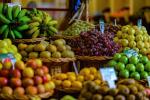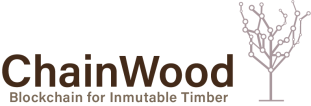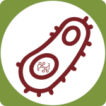
GIASAT Operational Group: Ecosystem of tools for the strengthening and consolidation of Sustainable Food Hubs (FHS) through multi-action innovations for the channel
- Type Operational group
- Status Filled
- Execution 2022 -2025
- Assigned Budget 395.340,37 €
- Scope Supraautonómico
- Autonomous community Andalucía; Aragón; Canarias; Castilla y León; Comunitat Valenciana; Madrid, Comunidad de; Navarra, Comunidad Foral de
- Main source of financing CAP 2014-2020
- Project website https://giasat.org/proyectos-giasat/
GIASAT's mission is to energize and support various stakeholders to achieve Territorialized Food Systems (SAT) based on agroecology, which, in a coordinated manner, with principles of sustainability and a social economy approach, collaboratively solve the need for organic, seasonal, and local food.
The GO-GIASAT project has improved the logistics of several agroecological Food Hubs through a detailed diagnostic, the design of more efficient picking protocols, and a feasibility study of returnable box systems. These actions have improved internal organization, reduced errors in order preparation, and professionalized distribution, with a direct impact on increasing the commercial flow of the Food Hubs involved.
The logistics assessment identified common problems such as a lack of process standardization, poorly adapted infrastructure, and limited digitalization. Solutions are proposed, such as reorganizing workspaces, implementing performance indicators, and improving delivery route planning. The main practical recommendation is the implementation of order preparation (picking) protocols tailored to the characteristics of the short channel. This reduces errors, improves internal organization, and saves time and costs.
It has also been proven that using returnable boxes in a closed loop between producers, Hubs, and customers not only reduces waste, but can also be economically viable compared to disposable systems.
Producers and managers can implement these improvements to gain efficiency, save costs, and open up commercial opportunities, especially in the short-term channel. These tools strengthen traceability, efficiency, and a sustainable brand image among engaged customers.
Public procurement and the school catering channel represent a prime opportunity to establish local channels between small and medium-sized producers and stable and long-lasting consumption points. This offers a profitable and stable channel. The regularity and stability of school cafeterias, with defined menus, allows for productive planning processes between the primary sector and schools, while also consolidating viable local logistics routes.
For this to be possible, it is necessary to work in coordination with catering companies, developing technical work in menu development so that they are grounded in the production seasons of each of the reference territories. At the same time, small-scale producers need to work cooperatively to concentrate their offerings, become more professional, and develop a viable and efficient logistics service; what we call FoodHubs, of which the Horta-Cuina project, Vallacolid, and Alimentando Córdoba are examples.
Throughout the project, a marketing channel has been established between these three Food Hubs and the schools through business coordination processes between production and management companies, developing a business innovation model and working together with the stakeholders in the value chain that make up the school catering channel.
The product of this activity is a specialized platform for the commercial, administrative-accounting, and traceability management of small agricultural and livestock businesses and groups of these, both with and without organic production certification.
This tool enables micro, small, and medium-sized businesses in the manufacturing sector to professionalize their daily management by digitizing repetitive processes such as preparing commercial proposals, managing orders and purchases, shipping, traceability, issuing delivery notes and invoices, and maintaining basic accounting, among others.
It also helps expand your customer base thanks to a cutting-edge sales management experience that allows you to create interactive sales catalogs with commercial terms—prices, formats, available payment methods, available delivery times, etc.—adaptable to each customer segment or channel.
State-of-the-art, cloud-hosted, and accessible from any device without a large investment, with the option of receiving tailored digital training, existing users report a significant reduction in administrative and order management tasks, slight increases in sales activity, and greater control over the financial health of their businesses.
Reaching the end consumer as close as possible is a goal for many family businesses that don't see sufficient margin or freedom of maneuver in conventional supply chains. During the project, attempts were made to establish agreements with companies, schools, and other establishments such as gyms, allowing product delivery to their facilities on a predetermined schedule. In this way, small-scale production groups can reach end-customer groups without incurring the full costs of home sales. The response in workplaces has not been satisfactory, while opportunities are more readily available in educational centers. It has also been noted that these proposals must have a more institutional and educational focus than a purely commercial one. They therefore require a certain level of support from all stakeholders.
Organic production is in greater demand in many foreign countries compared to Spain. For certain foods, Spanish demand could not absorb all production. Despite this, access to international markets is not easy for family businesses. During the project, the FHS of Ekoalde (Navarra), Saltamontes Bio (Manubles region), and Valle y Vega (Granada) have been trained to sell through wholesale channels. Finally, the exchange between these groups to supplement their local offerings, especially for the catering channel, has allowed them to establish a consistent wholesale sales channel and has avoided exports for the time being. By providing a complementary channel with logistics and pallet picking (much less costly than other channels), the activity has been diversified without overloading the structure. Intercooperation between local products and different regions has proven to have its place in the commercial framework.
The traditional retail sector is experiencing a crisis similar to that of family production and possesses a key capillarity for the leap in scale in consumption through short marketing channels. Despite this, this opportunity for synergy has been little explored. The project has tested various formulas with the traditional retail sector and specialized retailers in the FHS Ekoalde (Navarra), Vallaecolid (Mercaolid), and Minhca aqui (Aragonese Pyrenees). The results have not been as expected for several important reasons, such as the supply routines of these retailers, which are sometimes incompatible with the capacity of small businesses, the excessive prices for this channel, and the difficulty of differentiating the product within the store. It is concluded that, to enter this channel, it is essential to select products that can be produced at prices close to the average, and point-of-sale advertising strategies such as in-store displays or on-shelf identification. We must also assume that this channel may work better for some product categories than others. Meat, for example, is more difficult to sell than dairy products.
Our main objective is to promote the agroecological transition in the SATs by fostering social and technological innovations based on the collective strategies already being implemented in Spain around sustainable Food Hubs.
GIASAT's proposal focuses on promoting Sustainable Food Hubs (FHS) or sustainable logistics centers, since improving access to food and local markets requires developing food logistics and distribution adapted to small and medium-sized production and short marketing channel networks.
The work is carried out in an eminently practical manner, with supporting tools and processes based on the major management areas: supply chain, administration and management, and sales and marketing. To this end, we propose monitoring and developing innovations at different levels:
- Optimize logistics processes, implement support protocols for sustainable purchasing for catering businesses, increase the digitalization of participating FHS by developing improvements to GISAT's digital infrastructure, design innovative mechanisms for direct sales to end consumers in schools, workplaces, or homes, and enhance new capabilities for developing wholesale channels for organic products.
Develop and implement a digital ecosystem of tools to boost, accelerate, and improve food hubs and disseminate the toolkit among these and small and medium-sized farms and family industries.
The GO-GIASAT project has improved the viability of six Food Hubs in different regions through digitalization, logistics optimization, and new marketing strategies. Tools have been implemented that allow for improved management or cost reduction (up to 30% in transportation in some cases), increasing efficiency and professionalizing the activity. Revenue has grown significantly in some of the participating projects, such as Horta-Cuina. The collective catering channel has proven to be key to economic stability, while direct sales and retail continue to offer opportunities, especially if adapted to the territorial context.
The keys to success are specialization in the most stable channels, clear customer agreements, shared transportation, and participatory yet agile governance. Implementing this knowledge helps improve profitability, access new markets, and build strong local networks.
Among the most useful recommendations is the use of the free digital toolkit developed by the project, which includes cost calculators, crop planning tools, marketing and logistics guides, and tests to improve direct sales. This ecosystem allows farmers and small agri-food businesses to save time, improve their organization, and access new markets. Using these tools can facilitate entry into certain channels, optimize routes, and improve customer communication, increasing profitability without losing the agroecological identity. The main added value: professionalization without losing the soul of the project.
We have made available to the agroecological sector a complete ecosystem of practical tools, called the Toolkit, for the creation, support, and consolidation of Agroecological Distribution Centers (ADCs). The toolkit includes useful resources designed to offer solutions in the five areas of any project or business: Production, Marketing and Sales, Logistics, Administration and Management, and finally, Marketing and Communications. With the toolkit, small- and medium-scale productive projects can implement and improve key aspects of their daily operations.
All resources are free to download from the GIASAT website and are designed to provide self-guided initial training for both individual businesses and projects seeking to collectivize or collaborate in their distribution and logistics.
In this regard, the toolkit includes two comprehensive guides. The first covers the feasibility and phases of creating a Sustainable Food Hub (DFH), and the second addresses key points to consider in DFH governance. Along these lines, a test is available to the sector to evaluate the marketing capacity of a DFH specifically designed for retail trade, as well as a guide focused on using a comprehensive co-marketing tool for clusters (PODs).
Also included are content such as strategic marketing and communications guides, specialized tools for crop planning, cost and viability calculations for agroecological production, self-development of quality criteria for organic products in direct sales and short marketing channels, and explanations of the different picking models, among others.
- Coordinator/entity name: CERAI
- Coordinator/entity email: info@cerai.org
- Unidad alimentaria de Valladolid S.A (Mercaolid)
- Mercados centrales de abastecimiento de Valencia S.A (Mercavalencia)
- Asociación Ekoalde Elkartea
- Instituto Canario de Calidad Agroalimentaria
- Saltamontes Bio S.A.T
- Valle y Vega S.C.A
- Centro de Estudios Rurales y de Agricultura Internacional (CERAI)
- Fundación Entretantos
- iniciativas sociambientales G.S.Coop Mad
- Plant on Demand
- Madrid Km0 Centro Logístico Sociedad Cooperativa
- Asociación productores
- elaboradores y tiendas ecológicas Valladolid
- Asociación Vida Sana
- Universidad de Córdoba (UCO)






